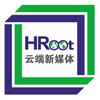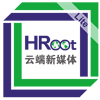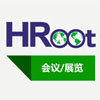Time:September 13rd-14th, 2012, 9am-5pm
Venue:Shanghai World Financial Center Forum (100 Century Avenue, Shanghai, China)
Member:1500
Attendee profile:CEOs, Presidents, General Managers, HR Directors and Managers, Professionals.
Website: http://chcf.hroot.com
FORUM BACKGROUND
In the past few years, the world is plagued by economic downturn and rising unemployment, while emerging markets performed well nevertheless. Although the employment services markets in emerging economies are relatively small, they post a strong and robust growth momentum. The liberalization of workforce market has played a critical role in the growth of HR services industries in developed countries. Given the growing liberalization of workforce markets in emerging economies, the HR services will increase accordingly.
However, in terms of overall economy or individual enterprises, China is at a critical crossroad. The demographic advantage of China is gradually fading out, and it will be increasingly difficult to obtain cheap labor in China. The development of China must be based on the sustainable development of per capita productivity. China is moving upward on the value curve, shifting from low added value production to high added value production, and focusing more on services and knowledge-based industries. To realize this goal, China should pool more investment not only in its “hardware”infrastructure, such as railways, highways, telecommunications, utilities, and production equipment, but also in the“software”of its economy , notably the competences of individual laborers and work processes of teams.
According to the estimation of the Boston Consulting Group, China's GDP is expected to top $10 trillion by 2030, but the increase will come not from its advantage in the demographic scale, but from its enhanced per capita output and HR capacities. However, a large number of Chinese enterprises have not catch up to the pace of the changing economic structure. They believe that new IT systems or process development programs will help enhance their capabilities in HR and dealing with the increasing complexity in management. In fact, simple outlining of systems and processes cannot reflect the real scenario of an enterprise. They should focus on how to realize the coordination of the overall business systems that involve individuals and teams. In 2011, China announced a series of policies and regulations to improve people's livelihood to a new level. It promulgated its national economic and social development in the 12th Five-Year Plan ", and revised its Individual Income Tax Law. On July 1, 2011, China started to implement its Social Insurance Law to establish a wide coverage of social insurance system. In 2012, it promulgated “Special Provisions for the Protection of Female Worker, while the revision to the "Occupational Disease Prevention Law" and the “Regulations on Enterprise Labor Dispute Negotiation and Conciliation.”
Surveys show that in 2012 Chinese enterprises have positive recruitment potentials, as 94% of the employers tend to maintain or expand their staff, while 43% of the employers tend to have more full-time employees. The shortage in skilled workforce caused by the retirement of the previous generation of workforce and a shrinking number of labor-age population has increased the competition. It is also an immediate dilemma for enterprises to manage their post-80 and post-90 employees, to establish their profile with the transparency of talent development and long-term career development plans. In the coming decade, talent management will be even more complicated in China, and the HR management will move further in the direction of high-end, quality services.
HRoot, a leading HR media and Internet company in China, will hold the 5th China Human Capital Forum (CHCF) at the Shanghai World Financial Center, in an effort to provide a rational and forward-looking platform where all the participants can discuss flexible solutions to HR management in China and the rest of the world, and thus fuel the development of these enterprises and the country with better HR services. The topics in the upcoming CHCF include: how to build a robust corporate culture through good leadership practices, how to establish effective management systems, how to manage new-generation employees, how to help new-generation employees take root in their enterprises, talent recruitment management in the social networking era, how to optimize the cost of HR management, how to build the leadership supply line, how to establish, communicate and manage employer brands, how to realize the value of HR business partnership, how to achieve effective training in the era of blended learning, among others.
The CHCF 2012 will draw a host of government decision makers, authoritative scholars from B-schools and enterprises, and high-profile HR managers from various enterprises. They will strike up in-depth discussions on the opportunities and challenges the global economy and the industry face, and the global trends in HR management in an effort to improve their management of enterprises and help them realize sustainable development.
| The guest speakers of CHCF 2012 are from | ||||
 |
 |
 |
 |
 |
 |
 |
 |
 |
 |
 |
 |
 |
 |
 |
 |
 |
 |
 |
 |
 |
 |
 |
 |
 |
 |
 |
 |
 |
 |
 |
 |
 |
 |
 |
 |
 |
 |
 |
 |
 |
 |
 |
 |
 |
 |
 |
 |
 |
 |
| Part of participating companies of previous CHCF | |||||
 |
 |
 |
 |
 |
 |
 |
 |
 |
 |
 |
 |
 |
 |
 |
 |
 |
 |
 |
 |
 |
 |
 |
 |
 |
 |
 |
 |
 |
 |
 |
 |
 |
 |
 |
 |
 |
 |
 |
 |
 |
 |
 |
 |
 |
 |
 |
 |
 |
 |
 |
 |
 |
 |
 |
 |
 |
 |
 |
 |
 |
 |
 |
 |
 |
 |
 |
 |
 |
 |
 |
 |
 |
 |
 |
 |
 |
 |
 |
 |
 |
 |
 |
 |
 |
 |
 |
 |
 |
 |
 |
 |
 |
 |
 |
 |
 |
 |
 |
 |
||
LOCATION
 The phenomenal and unabated pace of change and growth of Shanghai is an engine driving the economy of China. In the heart of this mega city is the Lujiazui Finance and Trade Zone in the Pudong New Area. Since its establishment in 1990, the Zone has grown into a leading international financial center under the visionary guidance of the Chinese government and is today the home to not only the Shanghai Stock Exchange but also financial institutions and hotels from around the world and international conference facilities. Shanghai World Financial Center is located in the center of the Zone. With 101 floors above ground level and soaring to a height of 492m, this project embodies Mori Building's original “Vertical Garden City” concept and incorporates the company's vast know-how and experience. Offering office space with cutting-edge specifications and all the functions expected of a world-class international financial center, Shanghai World Financial Center is a hub of culture and information, and boasts state-of-the-art security, standard-setting hospitality and superb urban facilities including world's highest observatory, sophisticated retail space and elegant conference facilities and a five-star luxury hotel.
The phenomenal and unabated pace of change and growth of Shanghai is an engine driving the economy of China. In the heart of this mega city is the Lujiazui Finance and Trade Zone in the Pudong New Area. Since its establishment in 1990, the Zone has grown into a leading international financial center under the visionary guidance of the Chinese government and is today the home to not only the Shanghai Stock Exchange but also financial institutions and hotels from around the world and international conference facilities. Shanghai World Financial Center is located in the center of the Zone. With 101 floors above ground level and soaring to a height of 492m, this project embodies Mori Building's original “Vertical Garden City” concept and incorporates the company's vast know-how and experience. Offering office space with cutting-edge specifications and all the functions expected of a world-class international financial center, Shanghai World Financial Center is a hub of culture and information, and boasts state-of-the-art security, standard-setting hospitality and superb urban facilities including world's highest observatory, sophisticated retail space and elegant conference facilities and a five-star luxury hotel.View 2012 China Human Capital Forum brochure via mobile applications:
 |
 |
 |
 |
| View the brochure via iPad App | View the brochure via iPhone or iPod App | View the brochure via Android App | Learn more activities via iPhone App "HRoot Expo" |